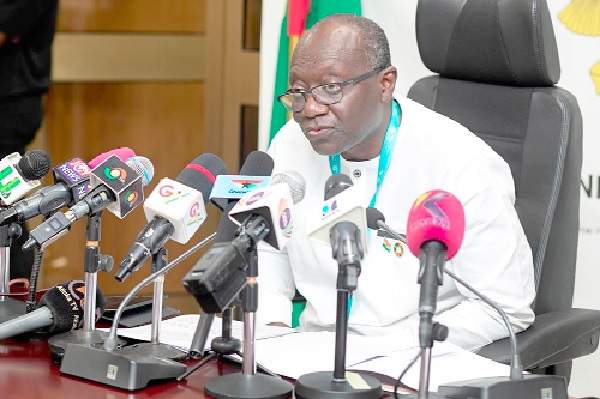
External debt negotiations: Experts worried about slow pace
Economists and experts have raised issues over what they describe as the slow speed of the country’s external debt negotiations.
They believe this could derail the objectives of the three year Extended Credit Facility (ECF programme with the International Monetary Fund (IMF).
The government is targeting an external debt relief of US$10.5 billion between 2023-2026 as it engages its external creditors for debt restructuring. The external creditors include both bilateral and commercial creditors.
The government announced a suspension of debt service on external commercial obligations on December 19, 2022 and has since then been engaging with them on a debt restructuring.
The government is also seeking to restructure debts totalling $14 billion, out of which $13 billion are in bonds with its external commercial creditors.
Following the formation of the Creditor Committee, the government is also expected to begin debt restructuring negotiations with its bilateral creditors in the coming days in a bid to restructure debts totalling $5.4 billion.
Under the IMF programme, the country is expected to reduce its debt to GDP ratio from the current 93.5 per cent to 55 per cent.
Slow speed of negotiations
In an interview with the Graphic Business on the sidelines of Institute of Fiscal Studies assessment of the IMF programme, Senior Research Fellow, Dr Said Boakye said the restructuring of the external debt component of the country’s debt had not been given the urgency that it deserved.
He said even though the underlying ECF-supported programme has been given approval by the Executive Board of the IMF, details of the negotiations were not yet known.
“As we stated in our review of the 2023 budget statement and the debt restructuring programme, given that the external debt component has serious exchange rate implications, the main trigger of the current macroeconomic instability, we expected the government and its partners to pay greater attention to the external debt,” he explained.
He said the IFS did not understand why the restructuring of the external debt had been made contingent on the completion of success of the domestic debt restructuring.
“It Is clearly visible from the approved programme that the external debt restructuring is critical to help the country meet its large fiscal and external financing needs,” he stated.
He said the government must therefore seek a speedy and impactful debt relief by negotiating for permanent debt service savings in addition to rescheduling of obligations.
Timely restructuring agreements
The IMF at the end of its recent visit reiterated that the timely restructuring agreements with creditors were essential to secure the expected benefits of the Fund-supported programme.
The IMF staff team led by Stéphane Roudet visited Ghana during June 8-15 as part of its regular engagement with the Ghanaian authorities and other stakeholders.
The discussions focused on recent economic developments and implementation of the Fund-supported programme approved on May 17, 2023.
MoU with Creditor Committee
Giving an update on the economy last Sunday, the Minister of Finance, Ken Ofori Atta, said the government had successfully worked with the Paris Club (PC) and other creditors to determine the parameters of the country’s official debt restructuring under the G20 Common Framework for Debt treatment.
He said in the coming weeks, the government would seek to complete the MoU with the Official Credit Committee on the terms of bilateral debt treatment.
“Government will sustain engagements with private creditors on external debt to reach agreement with the private creditors in the shortest possible time,” he stated.
On what terms the government was proposing, he said these discussions were very sensitive and there was a limit to what one could say when they were ongoing.
He said the government was going through the process to determine the MoU and the actual terms that would emanate from it.
‘But truly, with the kind of good will that we have in our engagements with them, we are confident that we will come up with an MoU that is acceptable and serves the objectives of the IMF programme,” he stated.
Domestic debt
On the domestic side, the minister said despite the considerable progress, there remained key outstanding operations.
He said the government was at an advanced stage of completing the domestic debt exchange programme in relation to the cocoa bills and the US$ denominated local bonds. “We have also rolled out a programme to engage Independent Power Producers (IPPs),” he stated.
Consistent with the MOU signed with Organised Labour in December 2022 on the exemption of pension Funds, he said they continued to be exempted.
He said the government was, however, currently engaging Organised Labour and Pension Fund Corporate Trustees, in line with the MOU, to explore mutually beneficial options within debt sustainability limits and to promote macroeconomic stability and economic recovery in the spirit of social partnership.
